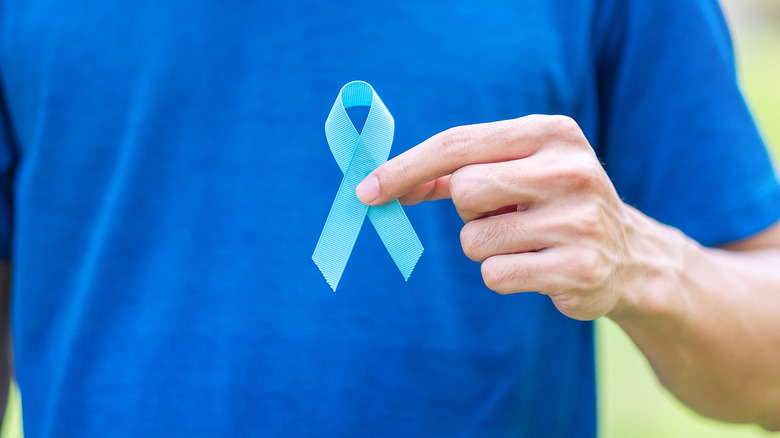New Study Suggests These Are The 2 Biggest Risk Factors For Cancer
There are many risk factors for cancer, but a new study suggests that there are two major ones: smoking and old age (via U.S. News). The findings, published in the journal Cancer, found that people who smoked regularly had a higher risk of developing almost every type of cancer than those who had never smoked. The absolute risk for cancer also increased for almost all study participants over the age of 50.
"As we consider the possibility that future tests may be able to identify several types of cancer, we need to begin understanding who is most at risk for developing any type of cancer," said lead study author Dr. Alpa Patel, senior vice president of population science at the American Cancer Society. "These types of data are not widely available, but necessary to inform future screening options, such as blood-based multi-cancer early detection tests that could help save lives." Other risk factors in men include alcohol intake, family history, red meat consumption, and physical inactivity. Other risk factors for women include a high BMI, type 2 diabetes, hysterectomy, tubal ligation, family history, high blood pressure, and physical inactivity.
How to reduce your risk of cancer
While cancer can be genetic in some cases, there are many ways you can reduce your risk of developing many types of cancer. Some lifestyle changes you can make include avoiding smoking and using tobacco products, as these have been shown to significantly increase your risk of developing many types of cancer (via Mayo Clinic). Eating a healthy diet is another way to reduce your cancer risk. This means eating plenty of fruits and vegetables, as well as limiting your intake of processed and red meats. Maintaining a healthy weight is also important, as obesity has been linked to an increased risk of developing several types of cancer.
Getting regular exercise is another great way to reduce your cancer risk. Exercise has been shown to help reduce your risk of developing breast, prostate, lung, colon, and kidney cancer. There are also some things you can do to reduce your risk of skin cancer. Wearing sunscreen and avoiding tanning beds are both great ways to protect your skin from cancer-causing UV rays (via CDC). While you can't completely eliminate your risk of cancer, making some lifestyle changes can help reduce your chances of developing the disease. Talk to your doctor about other ways you can lower your risk if you are concerned.


